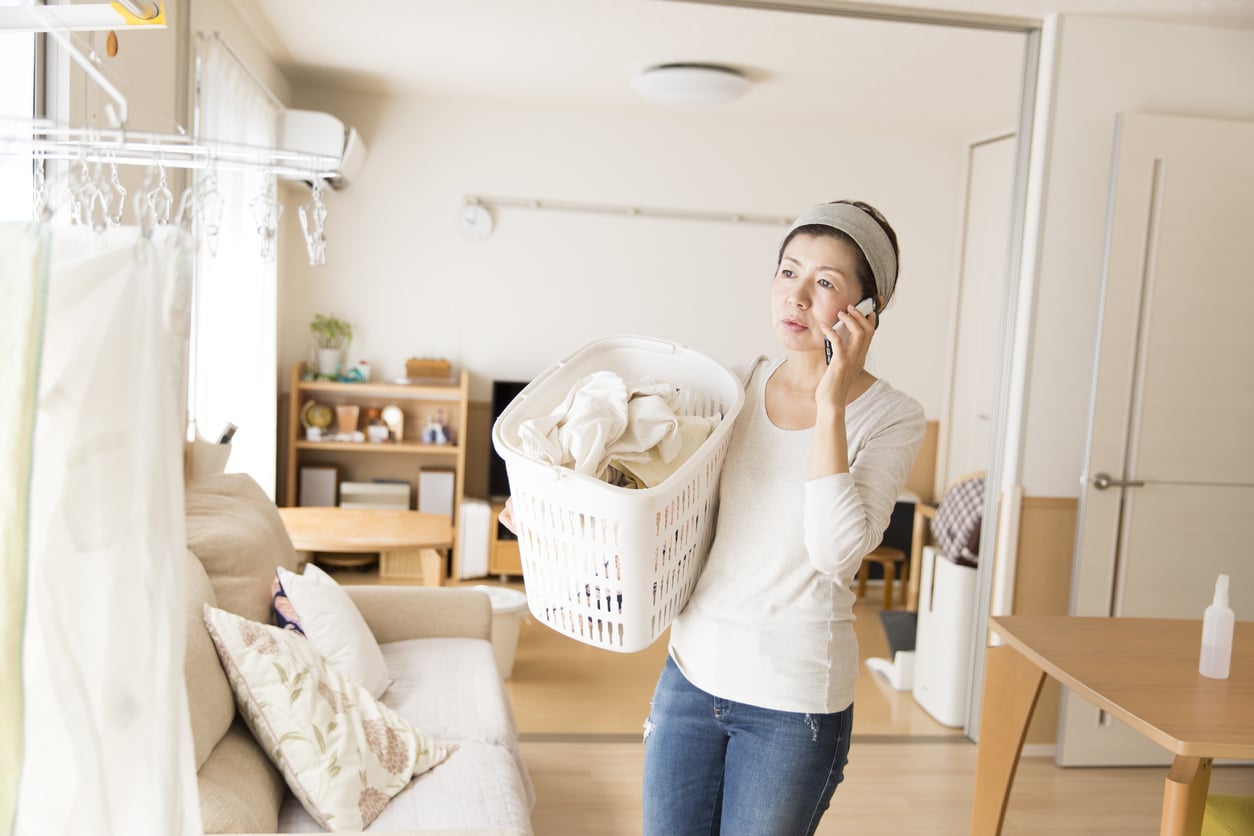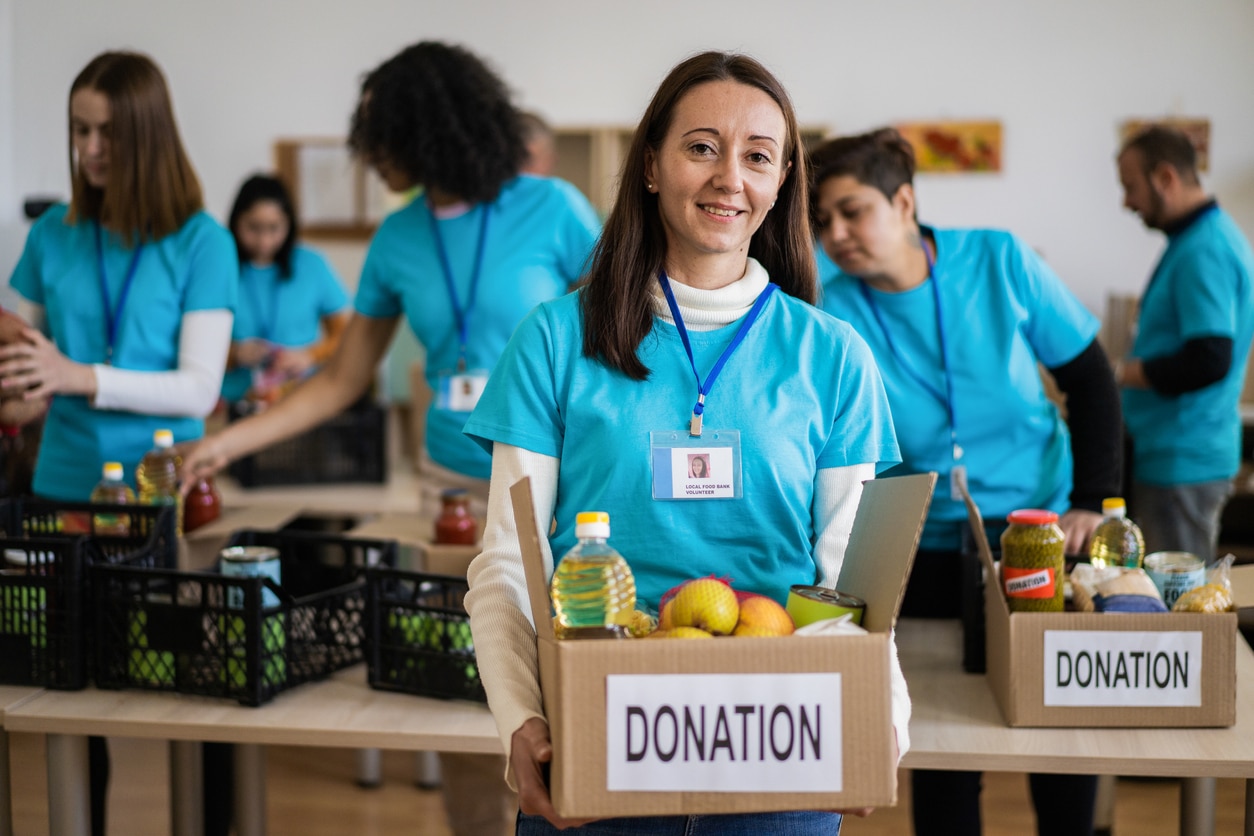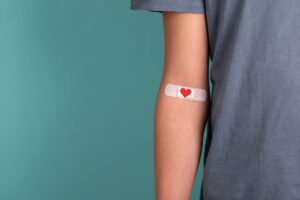When my children were in middle school, I was known as “Super Jen” amongst my friends. This term of endearment was bestowed upon me by my best friend’s mother because she said I was like a superhero, always turning up wherever and whenever anyone needed me. And it was true. My name was on no less than six school emergency contact cards as the person to call if a child was sick and their parent wasn’t available. I picked up and babysat kids two days a week in addition to looking after my own children. I was PTA president, a church volunteer, a full-time mom, the owner/operator of my own event planning business, and the organizer of every girls’ night out, which was a monthly occurrence within my friend group. In short: I was a super helper.
What is a Super Helper?
But being a super-helper takes its toll. It wasn’t until the last few years that I had the opportunity to look back on my days of being Super Jen and understand the devastating toll it took on my mental health, the developmental health of my children, and the slow unraveling of my marriage. I was indeed suffering from super-helper syndrome, a phrase coined by psychologists Jess Baker and Rod Vincent. It is defined as “people who have the compulsion to help others while neglecting to meet their own needs.”
Super Jen
When I was Super Jen, I organized meals on wheels, served on our district’s educational foundation, and was team manager for my kid’s sports team, which was a humongous undertaking. I supported my friends’ business ventures by letting them organize my kitchen, redecorate my daughter’s room, teach me yoga, and sell me make-up. I was the advice giver, caretaker, and pet sitter to all. To the extent that one evening, when my friend’s two dogs got out of their gate at two o’clock in the morning, the dogs came straight to my house. I remember hearing their collars and knowing exactly what it was, stumbling out of bed, loading them in my car, and driving them a quarter mile down the road to return them home. My friend and I just laughed like cross-eyed hyenas in her driveway that even her dogs knew that I was, indeed, Super Jen.
How Being a Super Helper Impacts Others
According to the book, Unhealthy Helping: A Psychological Guide to Overcoming Codependence, Enabling, and Other Dysfunctional Giving by Shawn Meghan Burn, Ph.D., there are a dozen red flags of dysfunctional helping. One such red flag is “The help or giving helps someone to stagnate or prevents them from developing needed life or professional skills.” This happened to my children because I was so busy “helping” (okay enabling) them to succeed in everything that, as adults, they had to learn failure the hard way. By “helping,” I mean interfering with their student/teacher relationships, school projects, prom dates, and basically anything that could result in a less-than-perfect outcome.
Another red flag identified in the book is “You are willing to overlook the ill effects of your helping and giving because it makes you feel or look like a “good” person.” One example was that I chronically helped a friend with every business venture she tried in order to make myself feel like I was doing right by her. Unfortunately, it was to the detriment of my personal finances, and no amount of financial or emotional support would suffice, and in the end, it was my finally saying no that ultimately severed our friendship.
Realizing I Had a Problem
Being Super Jen kept me very busy. So busy, in fact, I had no time to acknowledge my own life that was slowly deteriorating around me. My marriage was miserable, my career unfulfilling, and many of my friendships were sucking the life and resources out of me. I was anxious and controlling and often obnoxious with my unsolicited advice to friends and co-workers. In my mind, I was a vital part of all their lives, so I should inherently have a say in how they lived them. By the time I moved out of state three years ago, I was on anti-depressants and popping Ativan like they were M&Ms.
While moving during a pandemic, then working remotely, and getting a divorce all within a year was a lot to deal with, it was only after removing myself from the busyness of being Super Jen and my marriage ending that I was able to sit in stillness for a while and realize that being truly helpful, while also being happy, only happened after I created boundaries for myself and others. I also worked with a mental health professional to establish healthy behaviors around helping and to temper my desire to control my environment and everyone in it. And I learned to say NO.
Recovering From Super Helping
The good news is that studies show that doing good deeds leads to a decrease in stress, an increase in life expectancy, makes us feel better, and makes us happier, among other things. For someone like me—the recovering super helper—the doing needs to be done in moderation and not to the detriment of my mental health. I know that I’ve come leaps and bounds from being a super helper as I recently “loosely organized” a girls get together at my condo. I provided the address and the sangria but let everyone know to bring what they wanted and show up around 6:30. The atmosphere was super chill, and so was I.
My parenting style has also completely changed. Granted, both of my children are adults now, but I have taken a more hands-off approach and happily give advice only when asked. If I do find myself having to bite my tongue regarding an action or decision they are about to embark on, I simply say to them, “I have thoughts about that. Would you like to hear them?” If they say yes, then they have invited the answer, and if they say no, I continue biting my tongue and hope for the best. More often than not, their decision was the best one for them, and if it wasn’t, I’m there to support them regardless.
Finding Balance
These days, I’ve hung up my Super Jen cape to instead fly below the radar. I spend my days doing things I enjoy, like reinventing my career, forming new healthy friendships, walking my dog, and learning new hobbies. I spend less time trying to be everything to everyone and more time living free of anxiety and medications, now 30 pounds lighter and happily single. Do I still do good deeds? Of course. But they are smaller and without the fanfare, and that makes me extraordinarily happy.
Read More:
Could a Wellness Retreat Be Your Post-Divorce RX?










